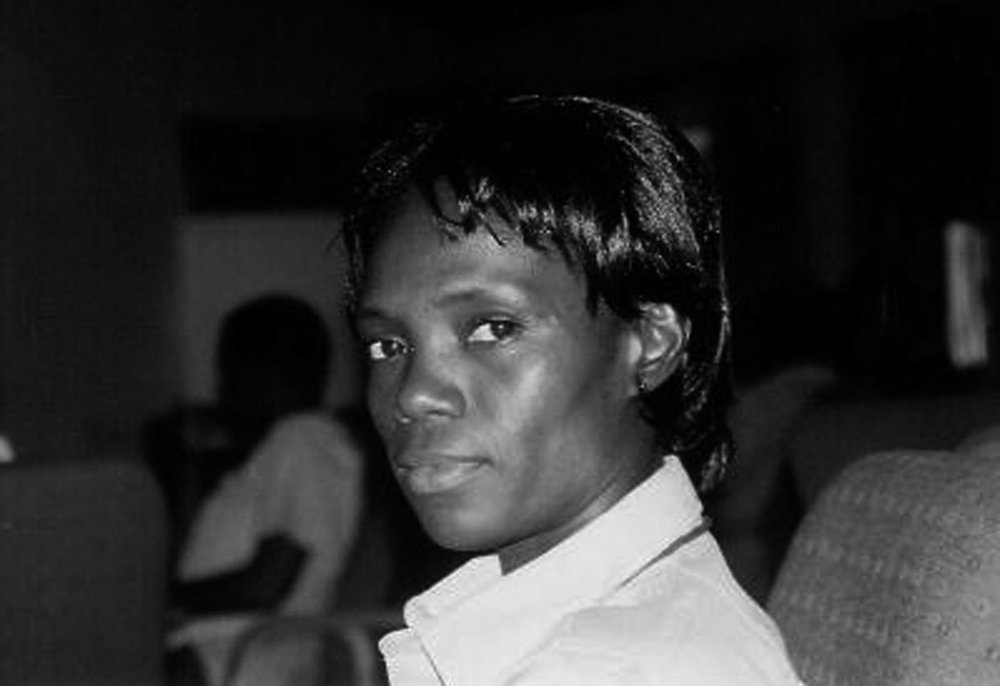Source Making Queer History
“We live in fear.”
-FannyAnn Viola Eddy
One of the many things we had to decide when we began this project was what period counted as “history”; what was the cut off date between the historical and ‘current events’? The final decision was not something as tangible as a year, but more ideological. We decided that we wanted to discuss the lives and identities of people who were no longer able to do so themselves. Thus, while FannyAnn Eddy was alive and well only twelve years ago, we are going to discuss her, and do our best to share her story, as she can no longer do so.
FannyAnn Eddy was born in Sierra Leone on June 14, 1974. From the years 1991 to 2002, her home country was engaged in a violent civil war that took many lives and disrupted the development of the country’s legal system. Even before then, Sierra Leone had complicated series of laws that addressed the queer community.
While in Sierra Leone sexual acts between two people society viewed as male was illegal, the same is not to be said about sexual acts between two people society viewed as female – quite possibly because the idea of two women in a sexual relationship was deemed “ridiculous” or “impossible.” That said, Eddy was able to be out as a lesbian without risking arrest. This does not mean, however, that she was safe; it meant that she had a freedom that many other members of the queer community at the time did not.
Early in life, FannyAnn was forced out of her country and into a refugee camp because of the civil war. Despite the danger she lived in, being both a refugee and queer, Eddy was never silent. In those years, Eddy revealed the strength of her character and compassion.
She could have reasonably gone on living her life in safety and only dealt with the problems in her own life, because of the freedom Sierra Leone’s convoluted laws gave her, but she didn’t. She fought to have the needs of others in her community acknowledged, and she fought hard, not stopping a moment for convenience or even her safety.
When she returned to her home in 2002, Eddy founded SLLGA (Sierra Leone Lesbian and Gay Association), the first organization of it’s kind in Sierra Leone. She worked to fight the laws that denied queer identities, focusing on the difference between the treatment of queer ‘criminals’ and cis/heterosexual ‘criminals.’ She spoke at the UN about how such inequality would lead to the belief that crimes against queer people were acceptable. Unfortunately, the bill she had hoped to pass failed due to lack of support, despite her intense efforts to push it forward. That did not stop her efforts, though. Eddy continued her activism and outreach in different areas with new and equally bigoted opponents.
Despite the huge amount of political activism she undertook, Eddy also managed to have a life within the queer community as not only an advocate but a member. She was known to be charismatic and a good friend to many. She had a partner named Esther Chikalipa and a son. She was known to be a loving mother, calling her son every day from wherever she was at the time, as her work often took her out of the country.
These facts make the next part of the story very hard to tell.
FannyAnn Viola Eddy was killed in her office in 2004 by a group of men who sexually assaulted her before murdering her. To this day, her murder is unsolved – an example of the police force’s deliberate incompetence when dealing with hate crimes against the queer community. Though they had one man in custody for a couple of days, he quickly “escaped,” and there was never any trial. No other men were charged, and the police refused to acknowledge that it was a hate crime.
But even her death could not stop her effect on the world; the Hirschfeld Eddy Foundation was founded in 2007 and works to this day to provide help for queer people who are in need in all parts of the world. There exists the FannyAnn Poetry Award, which works to promote queer poets and their work. Sierra Leone Lesbian and Gay Association, the organization that FannyAnn founded, is continuing their work in her home country. FannyAnn’s name may not be well known in many circles, but her impact on the world is widespread, and can still be seen today. She is, without a doubt, one of the most important queer figures in recent history.
We must look beyond all the beauty that was birthed after her death, and continue to recognize that FannyAnn should have been alive to see all that was created in her name. Her death was the result of meaningless, narrow-minded violence. Nothing good came of her murder, and nothing good ever could. It is not death that we as a community should look to have venerated. We do not want to be a community of murdered martyrs. FannyAnn deserved better.
She deserved a life; she deserved to watch as her country changed and grew, she deserved to be there to help as it did. But she didn’t get that because that opportunity was taken from her.
As we began with her words, we would also like to end with them, to–for a moment–give her back the voice that was taken from her:
“Silence creates vulnerability. You, members of the Commission on Human Rights, can break the silence. You can acknowledge that we exist, throughout Africa and on every continent, and that human rights violations based on sexual orientation or gender identity are committed every day. You can help us combat those violations and achieve our full rights and freedoms, in every society, including my beloved Sierra Leone.”
